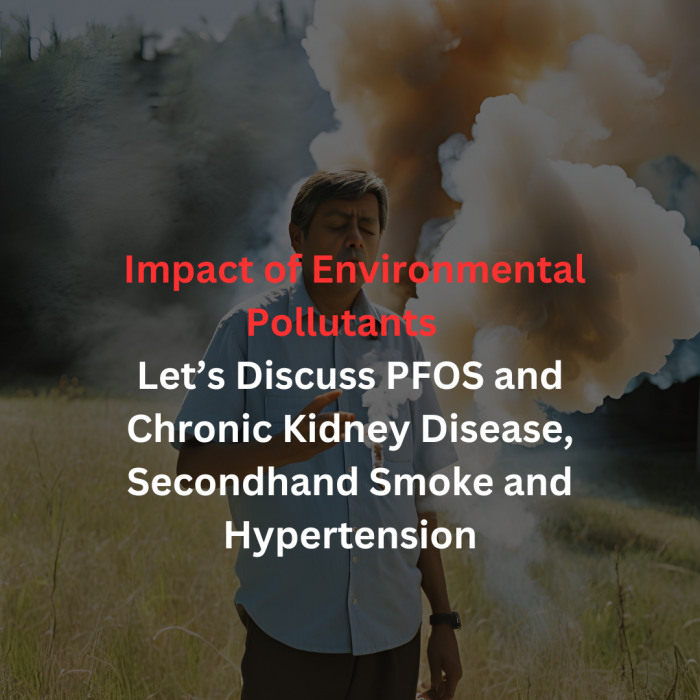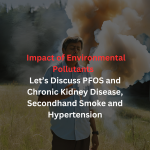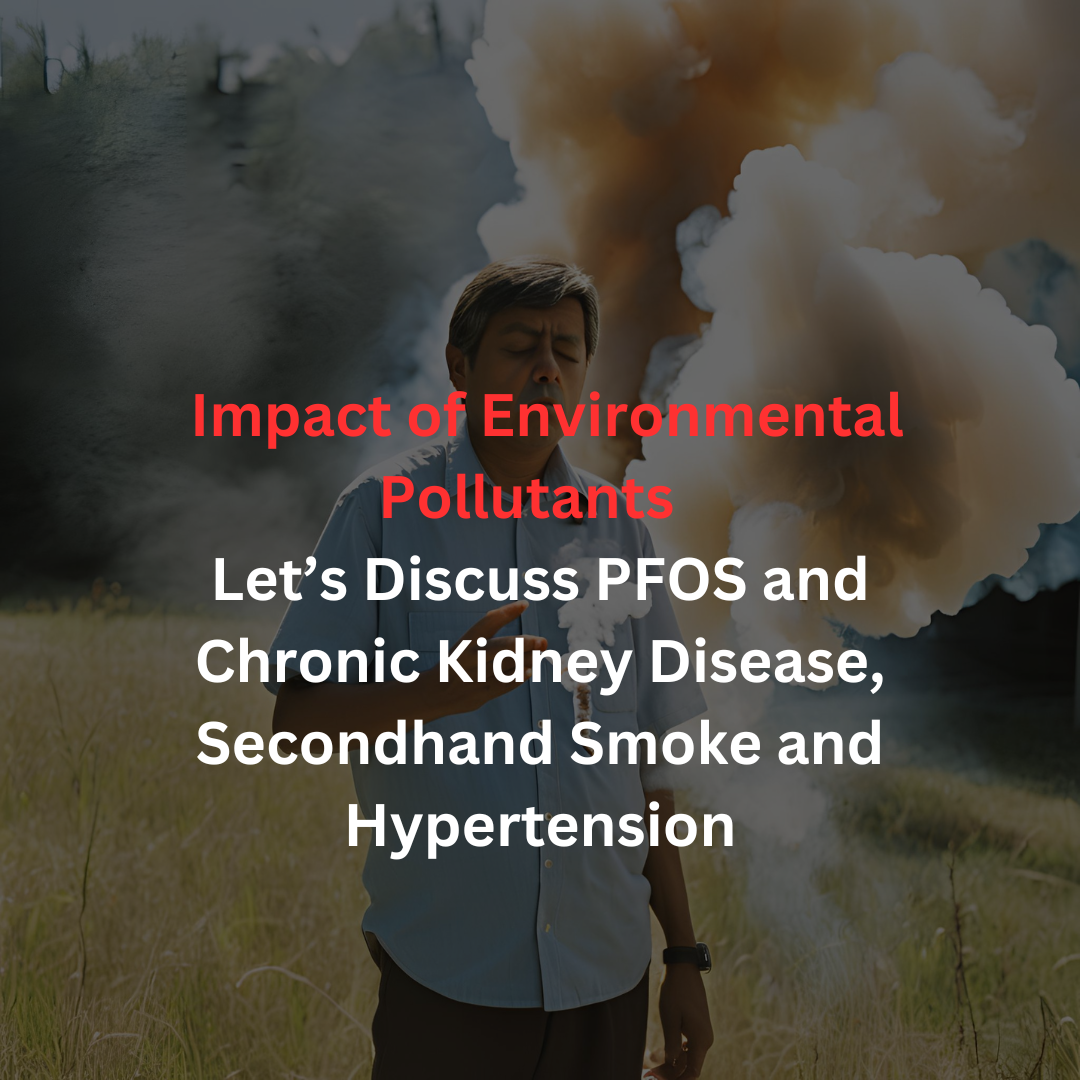Understanding the Impact of Environmental Pollutants: PFOS and Chronic Kidney Disease, Secondhand Smoke and Hypertension
PFOA and Chronic kidney disease
The significant finding regarding serum levels of perfluorooctane sulfonate (PFOS) and its association with an increased risk of chronic kidney disease (CKD) within the general US population is both alarming and indicative of broader environmental health concerns. This revelation, as outlined in a study by Dr. Anoop Shankar and team, underscores the intricate interplay between environmental pollutants and human health.
PFOS, a chemical compound, has long been scrutinized for its persistence, bio accumulative properties, and toxicity across various mammalian species. A 2002 study by the Environmental Directorate of the OECD highlighted these concerns, emphasizing the need for rigorous assessment and regulation of such substances.
What makes this finding particularly concerning is its implication for human health. The association between elevated serum PFOS levels and an increased risk of CKD underscores the potential systemic impact of environmental pollutants. Importantly, the study notes that this association persists even after adjusting for several confounding factors, including age, sex, race/ethnicity, body mass index, diabetes, hypertension, and serum cholesterol level. Such robust findings lend credence to the notion that PFOS may indeed pose a significant risk to renal health within the general population.
Moreover, this research underscores the interdisciplinary nature of environmental health. Collaboration between scientists, clinicians, policymakers, and advocacy groups is essential in mitigating the adverse effects of pollutants like PFOS on human health. By fostering dialogue and implementing evidence-based interventions, we can strive towards a healthier, more sustainable future for all.
Secondhand smoke exposure has been consistently linked to an increased risk of hypertension. Even brief exposure to secondhand smoke can lead to immediate adverse effects on cardiovascular health, including elevated blood pressure. Chronic exposure to secondhand smoke is associated with long-term consequences, including the development and exacerbation of hypertension.
Studies have shown that the chemicals present in secondhand smoke can disrupt normal vascular function, leading to endothelial dysfunction and arterial stiffness. A study conducted by Dr. Omayma Alshaarawy, Jie Xiao, and Dr. Anoop Shankar investigates the association between serum cotinine levels, a biomarker of secondhand smoke exposure, and hypertension among never smokers.
The study analyzed data from the National Health and Nutrition Examination Survey (NHANES) conducted between 2005 and 2008, involving 2,889 never smokers. Serum cotinine levels were used as a measure of secondhand smoke exposure, while hypertension status was determined based on clinical criteria. The results revealed a positive association between higher serum cotinine levels and hypertension among never smokers.These effects contribute to the development of hypertension over time. Additionally, the inflammatory and oxidative stress responses triggered by exposure to secondhand smoke further exacerbate cardiovascular risk.
Public health efforts to reduce secondhand smoke exposure, such as smoke-free legislation and smoking cessation programs, have proven effective in lowering hypertension rates and improving overall cardiovascular health. By raising awareness about the dangers of secondhand smoke and implementing policies to limit exposure, we can mitigate the adverse health effects associated with this pervasive environmental pollutant.

























































